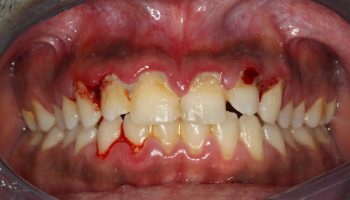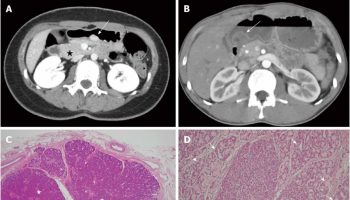Malingering
Malingering is intentional falsification or profound exaggeration of illness (physical or mental) to gain external benefits such as avoiding work or responsibility, seeking drugs, avoiding trial (law), seeking attention, avoiding military services, leave from school, paid leave from a job, among others 1. Malingering is not a psychiatric mental illness according to Diagnostic and Statistical Manual of Mental Disorders, Fifth Edition (DSM-5) 2. Malingering is deliberate behavior for a known external purpose. It is not considered a form of mental illness or psychopathology, although it can occur in the context of other mental illnesses. Motivation for malingering is usually external (e.g., avoiding military duty or work, obtaining financial compensation, evading criminal prosecution, or obtaining drugs) 2.
Although malingering was excluded from the index in DSM-5, it remains a “V” code, and the criteria for when to consider malingering remains unchanged 2. External (secondary) gain is necessary for differentiating malingering from factitious disorder (a disorder in which patient consciously creates physical or psychological symptoms to assume sick role, the primary gain). Malingerers show poor compliance with treatment and stop complaining about the assumed illness only after gaining the external benefit 3.
The prevalence of malingering is difficult to determine. In an estimate of malingering in forensic populations, prevalence reached 17%. In another study conducted by Department of Psychology, the University of New Orleans, the prevalence of malingering in patients suffering from chronic pain with financial incentive was found to be between 20% to 50% depending on the diagnostic system used. There have been efforts to determine the frequency of malingering in populations, but the reliability of those sources is questionable. Although it is presumed that the frequency of malingering is higher in females than males, there is no data to back up this presumption.
Malingering causes
Malingering has no specific cause, but the causes include socio-economic conditions 1. Malingering is commonly reported among prisoners avoiding trial, students avoiding school, workers avoiding work, homeless hoping for economic compensation/rations. Drug abusers commonly fake sickness, painful conditions, or insomnia to receive drugs of abuse including opioids such as nalbuphine, benzodiazepines, among others. Malingering is reported in people trying to avoid military service. Malingering has a close association with an antisocial personality disorder and histrionic personality trait 4.
Malingering symptoms
Malingering is associated with an anti-social personality disorder and histrionic personality trait 1. To get an external (secondary) gain, the individual fakes an illness that can be of physical or psychological nature. The patient consciously lies about his or her condition to get a benefit, and upon achieving the benefit, they stop complaining. No medicine or intervention can cure malingerers. Upon detailed history, the malingerer may exhaust their excuses and give up.
DSM-5 states that if any combination of the following 4 complains is present in a patient, then malingering should be considered 2.
- The medicolegal context of the presentation, for example, a lawyer sending his client for evaluation or patient presents with an illness while facing trial
- Marked discrepancy between the individual’s “claimed stress or disability” and “objective finding and observation”
- Lack of compliance with diagnostic evaluation, treatment regimen and follow up care
- Presence of anti-social personality disorder 5
Malingering often is associated with an antisocial personality disorder and a histrionic personality style.
Prolonged direct observation can reveal evidence of malingering because it is difficult for the person who is malingering to maintain consistency with the false or exaggerated claims for extended periods.
The person who is malingering usually lacks knowledge of the nuances of the feigned disorder. For example, someone complaining of carpal tunnel syndrome may be referred to occupational therapy, where the person who is malingering would be unable to predict the effect of true carpal tunnel syndrome on tasks in the wood shop.
Prolonged interview and examination of a person suspected of a malingering disorder may induce fatigue and diminish the ability of the person who is malingering to maintain the deception. Rapid firing of questions increases the likelihood of contradictory or inconsistent responses. Asking leading questions may induce the person to endorse symptoms of a different illness. Questions about improbable symptoms may yield positive responses. However, because some of these techniques may induce similar responses in some patients with genuine psychiatric disorders, exercise caution in reaching a conclusion of malingering.
Persons malingering psychotic disorders often exaggerate hallucinations and delusions but cannot mimic formal thought disorders. They usually cannot feign blunted affect, concrete thinking, or impaired interpersonal relatedness. They frequently assume that dense amnesia and disorientation are features of psychosis. It should be noted that these descriptions also may apply to some patients with genuine psychiatric disorders. For example, individuals with a delusional disorder can have unshakable beliefs and bizarre ideas without formal thought disorder or affective blunting 6.
The most common goals of people who malinger in the emergency department are obtaining drugs and shelter 7. In the clinic or office, the most common goal is financial compensation 8.
Malingering complications
If the demands of a malingerer are denied, then the subject may show aggressive behavior which may result in an offensive conflict. The doctor may face a lawsuit.
Malingering diagnosis
The diagnosis of malingering is based on history, physical exam, and psychological tests. No diagnostic laboratory tests are available to diagnose malingering. Laboratory studies are, however, useful to exclude organic cause and genuineness of illness.
A careful and detailed history taking is necessary to rule out malingering:
- Watch carefully for discrepancies in person’s behavior while taking prolonged, detailed history.
- Dig deep into patient’s personality (anti-social personality disorder, histrionic personality traits).
- Find out about the legal status of the patient.
- Ask rapid questions and see the incoherence between answers.
- Ask an open-ended and leading questions. (Questioning about symptoms not related to the “illness faked by the patient” may also induce a positive answer.
- The patient not knowing much about the assumed disease may say yes to any question).
- Watch for exaggeration of psychiatric symptoms like hallucinations and delusions.
Mental Status Exam
- Appearance and behavior: May appear disheveled, uncombed hair, untidy clothing, no eye contact, no rapport building. Irritated hostile behavior
- Mood: Answers low or elated and never normal euthymic. Cannot mimic lack of effect, anhedonia
- Thoughts: Exaggerated delusions, but cannot mimic formal thought disorders like schizophrenia; confused at times with true psychiatric thought disorders as patient with psychosis or schizophrenia can have bizarre delusions and unshakable beliefs
- Perception: Exaggerated hallucinations, both visual and auditory
- Insight: Have good insight about the disease. Almost always acknowledge suffering from the disease they fake
- Cognition: Cannot be assessed properly at times, because the patient may be noncompliant and may lie
Multiple examinations should be performed, and incoherences between the results should be noted. Various tasks are given to patients and performance on different occasions are noted. The inconsistent score in the same task performed multiple times suggest malingering.
Other areas to be investigated include:
- History of hospitalization, medication
- Current history of medication
- Family history
- Social history
These laboratory studies might include the following:
- Complete blood cell (CBC) count
- Serum electrolytes.
- Renal function tests
- Liver function tests (LFTs)
- Blood alcohol level
- Blood and urine toxicology screen (may also rule in malingering in case of drug abusers seeking opioids)
- Computed tomography (CT) scanning or magnetic resonance imaging (MRI) of the brain should be considered to rule out organic brain disorders
Other tests:
- The Minnesota Multiphasic Personality Inventory (MMPI)
- The F-scale
- Test of memory malingering
- The negative impression management scale
- Rey 15-item test
- The temporal memory sequence test
- Symptom and Disposition Interview (SDI)
Typically, deficits on physical examination do not follow known anatomical distributions. Otherwise, there are no specific techniques of physical examination that reliably detect malingering 9.
The following can be found on a Mental Status Examination 10:
- A patient’s attitude toward the examining physician is often vague or evasive.
- Mood may be irritable or hostile.
- Thought processes are generally cogent. Thought content is marked by preoccupation with the claimed illness or injury.
- Threats of suicide may follow any challenge to the veracity of the claim, or a response deemed by the malingerer to be inadequate.
- As noted under History, persons with malingering psychotic disorders often exaggerate hallucinations and delusions but cannot mimic formal thought disorders. They usually cannot feign blunted affect, concrete thinking, or impaired interpersonal relatedness. They frequently assume that dense amnesia and disorientation are features of psychosis. These descriptions may also apply to some patients with genuine psychiatric disorders. For example, individuals with a delusional disorder can have unshakable beliefs and bizarre ideas without formal thought disorder or affective blunting 6.
- Individuals with malingering may attempt to feign any other type of mental status abnormality, but usually do so in a manner that is erroneous or grossly exaggerated.
Functional assessments may yield suggestive findings. Functional capacity evaluations, such as those routinely performed in Occupational Therapy assessments, observe a person’s performance across a variety of task-related activities. Malingering patients often exert less effort than those suffering from genuine physical disabilities. Further, their performance across various individual tests is more variable than would be expected in the context of physical injury or illness. They may come across as more impaired in obviously work-related task tests than in those measuring daily living functions. They may perform more poorly on complex tasks, perhaps reflecting lower levels of effort, or greater difficulty in creating the expected response of an injured person. Behavioral observations are even more useful when paired with testing results 11.
Malingering treatment
Malingerer usually avoids psychiatric consultation. Referral to another physician is not advised.
Do not confront the patient directly. Do not question the beliefs of the patient. Do not accuse the patient of feigning his or her illness. Patient-doctor conflict, a lawsuit against the doctor, and violence may result. Rather confront the patient indirectly 12. Offer a scientific explanation but do not deny the beliefs of the patient. Invasive diagnostics and interventions ought to be avoided as their harm outweigh benefits. The physician can help by encouraging:
- Behavioral therapy
- Psychotherapy
- Counseling
People who malinger almost never accept psychiatric referral, and the success of such consultations is minimal. Avoid consultations to other medical specialists because such referrals only perpetuate malingering. However, in cases of serious uncertainty about the presence of genuine psychiatric illness, suggest psychiatric consultation.
Psychiatric consultation may be suggested as an augmentation to dealing with an acknowledged symptom. For example, the primary physician might propose, “Your pain has to be causing your system a great deal of stress, and we know that only makes the pain worse. Consultation from a psychiatrist might help us with your pain by reducing the stress.” Without being confrontational, the physician must remain honest 13.
Malingering prognosis
Malingering prognosis is unpredictable. Generally, the malingerer keeps on malingering until his incentive or external gain is fulfilled.
References- Alozai Uu, McPherson PK. Malingering. [Updated 2019 Mar 25]. In: StatPearls [Internet]. Treasure Island (FL): StatPearls Publishing; 2019 Jan-. Available from: https://www.ncbi.nlm.nih.gov/books/NBK507837
- American Psychiatric Association. Diagnostic and Statistical Manual of Mental Disorders, Fifth Edition, (DSM-5). Washington DC: American Psychiatric Press Inc; 2013. 726.
- Robinson JS, Collins RL, Miller BI, Pacheco VH, Wisdom NM. The Severe Impairment Profile: A Conceptual Shift. Arch Clin Neuropsychol. 2018 Mar 01;33(2):238-246.
- Lanska DJ. The Dancing Manias: Psychogenic Illness as a Social Phenomenon. Front Neurol Neurosci. 2018;42:132-141.
- Faust D. The detection of deception. Neurol Clin. 1995 May. 13(2):255-65.
- Resnick PJ. Defrocking the fraud: the detection of malingering. Isr J Psychiatry Relat Sci. 1993. 30(2):93-101.
- Anderson JM. Malingering: A constant challenge in disability arenas. J Controversial Med Claims. May 2008. 15(2):1-9.
- Purcell TB. The somatic patient. Emerg Med Clin North Am. 1991 Feb. 9(1):137-59.
- Samuel RZ, Mittenberg W. Determination of Malingering in Disability Evaluations. Primary Psychiatry. 2005. 12(12):60-68.
- Malone RD, Lange CL. A clinical approach to the malingering patient. J Am Acad Psychoanal Dyn Psychiatry. 2007 Spring. 35(1):13-21.
- Brink, K. Applying the use of activity in the assessment of malingering: A case illustration. Work. 2007. 29:47-53.
- Galli S, Tatu L, Bogousslavsky J, Aybek S. Conversion, Factitious Disorder and Malingering: A Distinct Pattern or a Continuum? Front Neurol Neurosci. 2018;42:72-80.
- McDermott BE, Feldman MD. Malingering in the medical setting. Psychiatr Clin North Am. 2007 Dec. 30(4):645-62.





